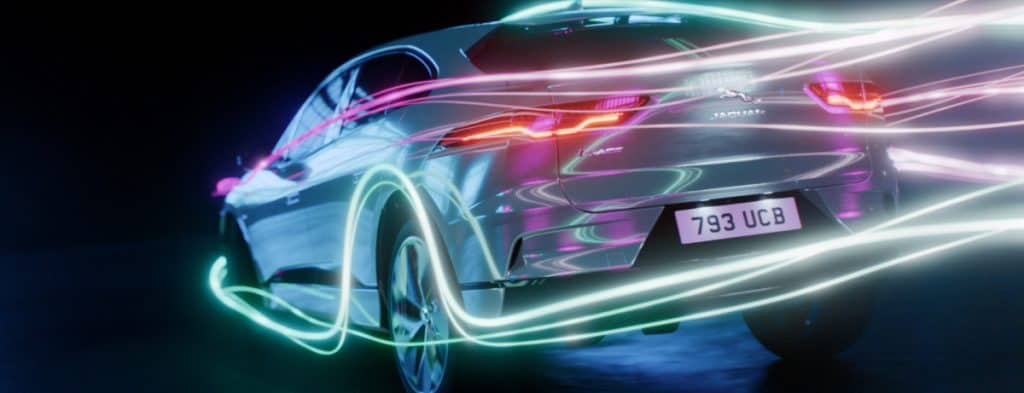 Jaguar Land Rover made some interesting and green announcements. Jaguar is testing a system that uses AI to respond to occupants’ emotions. Cars could also help kill germs.
Jaguar Land Rover made some interesting and green announcements. Jaguar is testing a system that uses AI to respond to occupants’ emotions. Cars could also help kill germs.
Jaguar Land Rover plans to manufacture a range of new electrified vehicles at its manufacturing plant in Castle Bromwich, UK. The company is commited to offer customers electrified options for all new Jaguar and Land Rover models from 2020.
The first new electric car to be produced at the plant will be Jaguar’s flagship luxury saloon, the XJ. The new all-electric model will be created by the same expert team of designers and product development specialists responsible for delivering the world’s first premium electric SUV, and 2019 World Car of the Year, the Jaguar I-PACE. The expansion of Jaguar Land Rover’s electrified vehicle line up will see customers offered a greater choice of vehicles to suit their lifestyles.
AI Are You Upset?
Through cameras and AI a car can detect someone’s mood. The lighting or sounds are changed to create a more calming environment. The mood-detection system can also lower the temperature if the drivers yawns or shows signs of being tired.
Dr Steve Iley, Jaguar Land Rover chief medical officer, said: “As we move towards a self-driving future, the emphasis for us remains as much on the driver as it ever has.”
“By taking a holistic approach to the individual driver, and implementing much of what we’ve learnt from the advances in research around personal wellbeing over the last 10 or 15 years, we can make sure our customers remain comfortable, engaged and alert behind the wheel in all driving scenarios, even monotonous motorway journeys.”
Stop the Flu
Future models could help stop the spread of colds and flu thanks to innovative ultraviolet light technology (UV-C) borrowed from the medical industry, where it has been used for more than 70 years.
By integrating UV-C, Jaguar Land Rover believes it could help to stop bacteria and harmful viruses, known as pathogens, from surviving in the cabin. UV-C is currently widely used for disinfecting water, filtering air and sterilising surfaces by utilising wavelengths of light between 200 – 280 nanometres.
Exposing pathogens to UV-C within the air conditioning system breaks down the molecular structure of the DNA, neutralising them. Clean air is then released into the cabin. The technology could even help in the fight against drug-resistant superbugs.
Jaguar Land Rover is exploring UV-C technology as part of its vision to create a tranquil sanctuary inside each of its luxury vehicles. The manufacturer is piloting a wide range of driver and passenger wellbeing features, as it looks towards a self-driving future.
“The average motorist spends as much as 300 hours per year behind the wheel. There is a clear opportunity to better utilise cars for administering preventative healthcare.” “The implementation of individual wellbeing measures as part of our ‘tranquil sanctuary’ research promises to not only improve quality of life for our customers but in this case, offers clear advantages in reducing pathogen spread – protecting the overall population from the threat of disease; particularly as we move towards shared mobility solutions.” says Dr. Steve Iley.
Jaguar Land Rover is already actively seeking to neutralize pathogens in its latest generation Heating, Ventilation and Air Conditioning (HVAC) systems, available across the range including the all-electric Jaguar I-PACE and Range Rover Sport. The current Four-zone Climate Control and Cabin Air Ionisation system works by using high voltage to create trillions of nano-sized negatively charged particles (ions) coated in water molecules. These ions deactivate pathogens, forming larger particles which are removed from the air as they are brought back into the filter. As well as combatting pathogens, the ions also act upon odour molecules and allergens in a similar way.
Recent medical trials* suggest the use of UV-C could be even more effective as it has been shown to cut the transmission of four major superbugs by up to 30%.
: